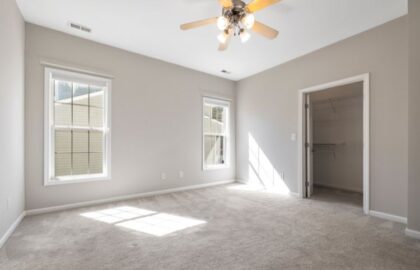
Renting a property in Cairns comes with certain rights and responsibilities for landlords and prospective tenants.
One key aspect of this relationship is property inspections.
As a tenant, you have the right to enjoy your rented space with peace and privacy. Yet, as a landlord, you have the right to ensure your property is well-maintained.
This can blur the lines of what each party can do.
So, in this guide, we’ll address a crucial question that often arises in the minds of tenants: Can a landlord inspect a property without notice in Cairns, Queensland?
We’ll delve into the specifics of the law, your rights as a tenant, and what constitutes reasonable notice. Understanding the rules surrounding property inspections is vital to maintaining a harmonious living arrangement.
Let’s explore this topic, clarify the regulations, and provide you with the knowledge you need to ensure your rights are respected.
What Are Your Rights as a Tenant?
In Cairns, Queensland, and throughout the broader Australian real estate landscape, tenants have rights that safeguard their peace, privacy, and security within a rental unit.
That’s why there are strict rules that govern property management.
Understanding these rights is essential for any renter, as it ensures a balanced relationship with the landlord and property manager.
Right off the bat, as a tenant, you have the right to peaceful enjoyment of the property you rent. This means that you should be able to live in your home without unnecessary interference.
Your landlord or property manager must respect your privacy and avoid intruding on your living space without valid reasons.
Other than that, when you rent a property, you have the right to exclusive occupation of that home. In other words, you can live on the premises as if it were your own, within the terms of the tenancy agreement.
Your landlord can’t enter your rented property at will; they must follow the rules and regulations set out in Queensland’s tenancy laws.
Moving on, your privacy within the rental property is of utmost importance. A landlord or property manager shouldn’t enter your home without your permission.
That’s except under specific circumstances defined by law. This includes property inspections, repairs, and emergencies.
What does Queensland Law say?
Queensland has specific laws and regulations in place to ensure that both parties’ interests are protected and that property inspections are fair and transparent.
For example, in Queensland, inspections should follow the Residential Tenancies and Rooming Accommodation Act 2008.
This legislation sets out the framework for tenant-landlord relationships. That includes the rules surrounding property inspections and their frequency.
Besides that, according to Queensland law, landlords and property managers must adhere to a high standard of entry. They have to respect your rights as a tenant, including your right to peaceful enjoyment and exclusive occupation of the property.
On top of that, the Act requires that landlords provide tenants with reasonable notice before entering the rental property. This has to be in writing, and it should specify the date, time, and purpose of the entry.
The notice ensures that tenants have sufficient time to prepare for an inspection or any other entry.
Yet, in some cases, tenants and landlords may agree on entry without notice. This can be done when both parties find it convenient and are in mutual agreement.
For instance, if a tenant wishes to address a maintenance issue, they may invite the landlord or property manager without requiring written notice.
This can be more flexible and convenient for both parties, but it’s important to document such agreements.
Finally, in the case of emergencies, such as a burst pipe or a gas leak, landlords and property managers can enter the premises without notice.
However, even in these cases, they should respect your privacy and provide notice as soon as it’s practical.
Queensland’s tenancy laws exist to provide a clear and fair framework for property inspections and other aspects of renting.
When Can a Landlord Inspect the Property?
One of the key questions tenants ask is: under what circumstances can a landlord inspect a rental property in Cairns, Queensland?
It’s essential to have a clear understanding of these circumstances to ensure that the property manager respects your rights as a tenant and maintains your privacy.
In Cairns and throughout Queensland, a landlord can inspect a property under a few specific conditions. These typically include:
- Routine Inspections
Landlords can conduct routine inspections to assess the property’s condition and ensure that the tenant meets their responsibilities, as outlined in the rental agreement.
These check-ups can occur every three to six months and must be conducted during suitable times and within normal hours. That means the property manager can only enter your home between 8 am. and 6 pm. on any day except for public holidays.
Plus, landlords must provide reasonable notice, usually at least seven days in advance.
- Potential Breach of the Agreement
If a landlord reasonably believes that the tenant isn’t adhering to the terms of the tenancy agreement, they can inspect the property to assess the situation.
This may include concerns about damage, unauthorised pets, or unapproved subletting. Again, reasonable notice is required.
- Tenant Agreement
If the tenant agrees to an inspection, it can occur without written notice. This may happen when a renter wants the landlord to view or address a specific issue in the property.
- Potential Sale of the Property
If the property is on the market for sale, prospective buyers may wish to inspect it. Yet, they still need your explicit permission to enter your property.
Once they have your consent, the landlord or their agent can request access to show the property to prospective buyers.
What Constitutes “Reasonable Notice”?
In Cairns, Queensland, and throughout the state, the term “reasonable notice” is central to the process of a landlord inspecting a rental property.
It’s a fundamental aspect of property inspections, ensuring that tenants are afforded their rights and can adequately prepare for the entry of the landlord or their representative.
So, what exactly constitutes “reasonable notice” in Queensland? Here are a couple of markers to make this easier to understand.
For starters, under Queensland law, landlords must provide a minimum notice period to tenants before conducting a property inspection. It should be at least 24 hours prior to the check-up.
This allows you ample time to make necessary arrangements, clean the property, and be present during the inspection if you wish.
Other than that, the notice must be in writing. You can do that through a written communication method, such as a letter or an email.
It should clearly state the date, time, and purpose of the inspection. That ensures tenants can plan accordingly.
It’s also important to note that the specified time should be within normal hours and at a convenient time for you.
What to do if a Landlord Violates Your Rights?
When you believe that your landlord violated your rights regarding property inspections in Cairns, it’s essential to take appropriate action.
Start by discussing your concerns with your landlord or property manager. Plus, it’s a good idea to maintain records of all interactions, including any violations.
If the issue remains unresolved, consider seeking legal advice or contacting the Residential Tenancies Authority (RTA) in Queensland.
Understanding your rights and having proper documentation are crucial when addressing potential breaches. They ensure that you can take the necessary steps to protect your rights as a tenant and maintain a harmonious tenant-landlord relationship.
Wrapping Up
Can a Landlord Inspect a Property Without Notice? The short answer is no, they need your explicit permission to enter your home.
Yet, there are some exceptions including emergencies and cases of suspected family violence.
In Cairns, knowing your rights as a tenant and understanding the laws governing property inspections are crucial.
Our guide sheds light on the regulations and when inspections are permissible.
This knowledge empowers prospective tenants to enjoy their rental properties while maintaining a harmonious relationship with landlords.
Clear communication and adherence to these guidelines ensure a positive experience in the vibrant real estate landscape of Cairns.







